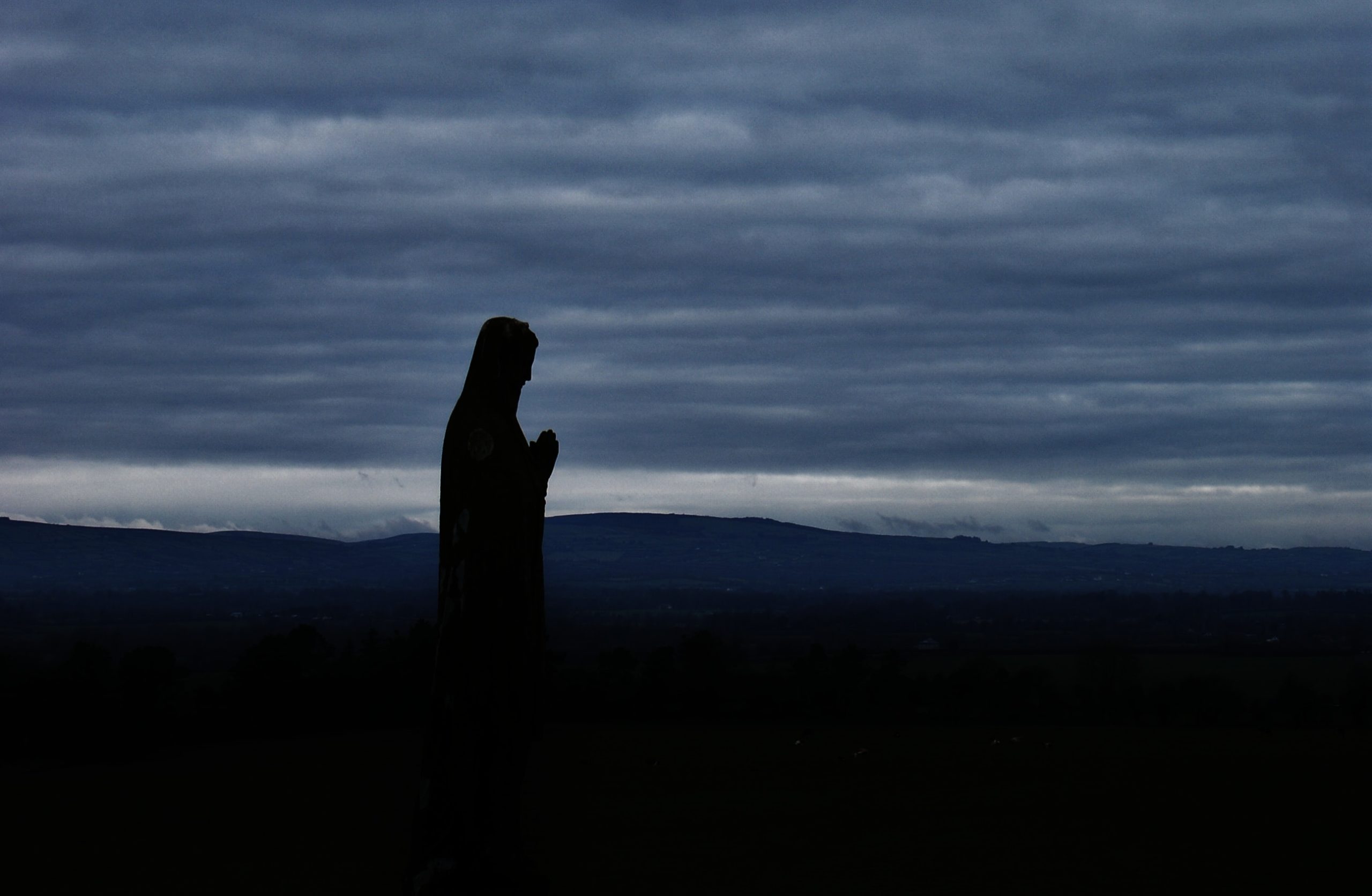
For as long as I can remember, I have always enjoyed listening to Christmas music. Whenever the first cold snap comes through in West Louisiana, I immediately begin listening to seasonal music. "Hark! The Herald Angels Sing," "O Come O Come Emmanuel," "Infant Holy, Infant Lowly," and "Come Thou Long Expected Jesus," are among some of my favorites, and we regularly listen to "The Messiah" by George Frideric Handel as a family.
But each year the haunting melody of "Mary Did You Know?" by Mark Lowry (1984) captures my imagination. In the song, Lowry asks several questions of the infant's mother? There are some that are simple to answer, but below are the ones that catch me each time they are sung.
Did you know that your baby boy has come to make you new?
This child that you've delivered, will soon deliver you.
Mary, did you know that your baby boy is Lord of all creation?
Mary, did you know that your baby boy would one day rule the nations?
Did you know that your baby boy is heaven's perfect lamb?
That sleeping child you're holding is the great I am.
Lowry captures the scene beautifully as he takes us on the journey to gaze through the eyes of Mary as she holds Jesus. God incarnate is wrapped in swaddling cloth, but was Mary privy to that knowledge? And furthermore, what did Mary know?
The Biblical Evidence
Each Gospel, in its own respective sense, focuses on a certain aspect of the life and ministry of Jesus. Of the four in the New Testament, Luke discusses Mary more than Matthew, the only other Gospel to mention another infancy narrative. In Matthew 1:18-25 the reader is introduced to Mary, the mother of Jesus, but only with the comment that Joseph was betrothed to the young girl (Matt 1:18). In Luke 1:26-38, the reader is given more information about how this immaculate conception happened. We are told that Gabriel visited Mary in the city of Nazareth (1:26; cf. Matt 2:23) and announces that she is favored by the Lord (1:28). Next, Gabriel's announcement occurs in rapid succession. First, she will conceive in her womb, bear a son, and name him Jesus (1:31). Second, he will be great and called the Son of the Most High (1:32). Third, the Lord God will give Jesus the throne of his father David (cf. Matt 1:1-17). Fourth, he will reign over the house of Jacob and, fifth, his kingdom will not end (1:33). Sixth, the child that is born will be called holy, the Son of God (1:35),
Now, outside of what Gabriel announces here on the nature of who this baby is and what he will do, this account is the only type of clarification Mary receives about Jesus. We see in some of the next narrative sections that John leaps in Elizabeth's womb whenever she hears the greeting from Mary (1:41), and the wonderful Magnificat which she prays (1:46-55; cf. 1 Samuel 2:1-10) seems to intimate some type of knowledge that Lowry suggests. Furthermore, the arrival of the newborn child in Luke 2 brings forth shepherds who tell of the glorious sight they witnessed (2:16-18), which causes Mary to treasure these words and ponder them in her heart. Even when the family takes him up to Jerusalem to do what was written in the Law (2:22), there is a sense of significance given to the parents by the devout Simeon and the prophetess Anna (2:29-39). Yet, I am still doubtful.
Mary Knew, But Only Partially
The reason I have my doubts that Mary knew what Lowry hints at in this song occurs in Mark 3. After choosing the twelve, his family went out to seize him because they believed he was out of his mind. Later in 3:31, his mother is present when his brothers come presumably because they believed Jesus was out of his mind.
Perhaps, though, is where we need to extend grace to Mary. It is here that Mary apparently has her doubts about Jesus or, maybe, what Jesus was doing did not necessarily line up with what the Son of God should do. And here we are prone to cast stones, self righteously claiming that "Surely had I been there and seen the angel, heard the news, and seen God incarnate myself, I would never have doubted." But that is exactly the opposite of what Israel did repeatedly. Israel, having seen all the miraculous works of God that were done in Egypt, chose a golden calf over the living God (cf Ex 32).
It appears that, to some extent, Mary was given explicit details about who her son would become; but notice that Gabriel never fills in the gaps as to how it would happen. So she doubts, because she's sinful, and we doubt as well because we are sinful. How often has God told us in the Scriptures that he is good, but we choose our own golden calf? How often has God told us in the Scriptures to trust in him, but since he does not fill in the details we take it upon ourselves to worry, plan, and neglect prayer because we reason God is "out of his mind" for not telling us? Oh God, be merciful to us.
So what does Mary exactly know? The New Testament scholar George Eldon Ladd became famous when he wrote extensively on the "already-not yet" inaugurated eschatology that appears in the New Testament. I think that his model is helpful here as well. Mary "already" knows, to some extent at least, of who Jesus was to become, but she did "not yet" fully realize it, much like the disciples. Did she know that Jesus was the great I Am? Did she know that her baby boy has come to make her new? Did she know that the child she delivered would soon deliver her?
She does now.

